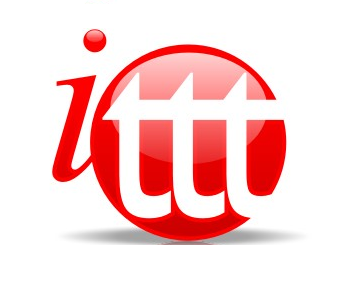Our world-renowned TEFL / TESOL certification course in Vietnam equips you for the task of teaching English overseas, or in your home country. Our TEFL certification courses last for four weeks and have a very practical emphasis. There is no need to speak any language other than English, as our courses concentrate on training you to teach English with the international standard communicative approach – where English is the only language used in the classroom.
This is the most practical and fundamental area of any TEFL training course. During the teaching practice sessions, trainees have the opportunity to teach real students of English and put into practice the skills learnt during the theoretical parts of the course.
2) Foreign Language Experience
During the course, trainees receive instruction in an unknown foreign language to help them reflect on the experience of being a learner. This session is extremely useful in creating empathy between the teacher and student and should help trainees to direct their own teaching.
3) Language Awareness
a) This area focuses on grammar and covers subjects such as parts of speech, the structure of tenses, conditionals and modals and other common grammar points. During these sessions trainees learn about these subjects as well as ways to teach them to their future students in the classroom.
b) This area also looks at the subject of phonology and covers phonemics, word and sentence stress, intonation and connected speech.
4) Student Profile
For this part of the course, each trainee is required to work with an individual student in order to work on things such as rapport building, error analysis, correction techniques and addressing individual student needs. Three meetings with the student are required to complete the profile, after which the trainee completes a one-to-one lesson with their student. The final stage is the completion of a written report regarding the lesson.
5) Teaching Techniques
This component of the course covers areas such as:
- Lesson planning
- Classroom management
- Establishing rapport
- Discipline in the classroom
- Managing equipment and teaching aids
- Creating materials
- Correction techniques
- Evaluation and testing
- Teaching vocabulary
- Teaching grammar
- Teaching receptive skills (reading and listening)
- Teaching productive skills (speaking and writing)
- Games in the classroom
- Songs in the classroom
- Teaching beginner students
- Teaching individual students
6) Materials Project
All trainees are required to create their own set of materials to be used during the teaching practice. These materials will be useful in future teaching environments and will help to instill the benefits of creativity and resourcefulness in relation to your lesson planning. The materials should be easily portable, durable and adaptable for different lesson points.
Once you have created your materials project you will present it to a course trainer and demonstrate how it will be used in the classroom. Your trainer will then provide advice and suggestions on how they can be improved and how they could be used in another context.
Apply Today
All applications from candidates aged 18 (younger ages may be considered in exceptional circumstances) and above will be considered for our English teaching courses. Our in-class TEFL courses are intensive, four-week programs; however, all trainees should still have sufficient time to explore the local area, experience the culture and to meet new people. Also, individual course organizers will often arrange leisure activities for our trainees so they can socialize in their spare time and make the most of their experience.
Getting Started
The first step in enrolling on our TEFL course in Vietnam is completing a free application. If you are at least 18 years of age and speak English fluently, you are eligible to apply for the course. The application is brief and we will send you a prompt reply. Once approved, you will receive additional information about the course content and schedule, your accommodation options, travel arrangements, as well as payment options and more.
However, training in Vietnam doesn’t mean you have to stay and work there. If you would like to move on after the course we can help you find a job nearly anywhere in the world. Apply today and you will be on your way to starting a TEFL course in a city where a healthy economy and highly valued education make for a great teaching climate.
Course fees
The total price is divided into: deposit and balance.
The deposit may be paid via a) credit card b) PayPal c) wire transfer d) Western Union.
The balance of the course fee must be paid by cash, PayPal or bank transfer directly to the training center on the first day of the course.
Reviews
TEFL Ho Chi Minh City | TEFL Vietnam
Formerly the capital of South Vietnam, Ho Chi Minh City (HCMC) is the site of an amazing mix of Eastern and Western culture. Commonly known by its former name, Saigon, HCMC is a superb location for TEFL courses in Vietnam.
With a population of over 7 million people, HCMC is Vietnam’s largest city as well as its economic, industrial and financial centre. However, despite its large size and continued development, the city still retains much of its culture and traditions, where city life takes places on the streets in cafes, markets, stalls, shops and many waterside venues. Although recent history has taken its toll on Vietnam, there is an abundance of things to see and do here. Ben Thanh Market is the largest in the city and is a great place to pick up a bargain and to explore HCMC’s local culture and traditions. Don’t forget to drop by Chinatown and visit the Thien Hau Temple. Wherever you go in this vibrant city, you will find an energetic, optimistic feel, with many large multinational companies establishing offices here the city is rapidly modernising, yet HCMC retains its uniquely Vietnamese dynamic.
Not far from HCMC, you can enjoy the many superb beaches that are dotted along the coast, as well as the unique beauty of the tall mountain ranges that are located inland. Wherever you go in Vietnam, you will experience the hospitality and charm of its warm and friendly people.
TEFL Course in Ho Chi Minh City
Our training centre in Vietnam is located in the centre of Ho Chi Minh City. The school is well equipped with everything that you need to successfully complete the course. There is a wide range of teaching materials and resources to help you with your studies and the classrooms are spacious and well equipped. The school also offers free internet access to our TEFL course students.
During your course you will have the option of staying in a private room in a hotel or guesthouse, as well as an apartment which is located within close proximity of the TEFL training centre. Regardless of which option you choose all of the rooms are clean, comfortable and are equipped with air-conditioning and a private bathroom.
The course fees listed on our website are inclusive of course-related lessons, materials, teaching practice, assessments, certificates, references, lifetime job assistance and more. We have no hidden costs or extra charges so the prices you see on the site are the prices you will pay.
The School
Ho Chi Minh City is a large, cosmopolitan city of approximately 7 million people. The city is still commonly referred to as “Saigon” and it remains the country’s financial and business hub. Ho Chi Minh City is generally regarded as the largest and most developed city in Vietnam.
You can experience a mix of the old and new here, where modern skyscrapers are situated next to the faded grandeur of old colonial buildings. Despite the modernisation of the city, many traditional cultural elements can still be found in the wide variety of Chinese-style pagodas and historical monuments and landmarks, perhaps most notably the Notre Dame Cathedral, the Old Post Office and the Reunification Hall.
Ho Chi Minh City is well known for its vibrant nightlife with a wide variety of local and international bars and cafes which are mainly concentrated in the centre of the city. The city is also regarded as the culinary capital where you can taste a variety of dishes ranging from typical Vietnamese regional specialties to international cuisine. Here you will find many of the best Vietnamese, French, and Chinese restaurants in the entire Asian region.
TEFL Course Location in Ho Chi Minh
The training centre for your TEFL course is located in close proximity to numerous facilities including banks, shops, a local park and it is not far from the general backpacker area where you can find a good range of western, Vietnamese and vegetarian food at very affordable prices.
The school’s facilities include free internet access, tea and coffee, comfortable and well-equipped classrooms plus all of the necessary teaching resources and facilities that you will require for the duration of the course.
The staff at the school are very experienced and friendly and are always happy to help with any issues inside or outside of the classroom. As such, Ho Chi Minh City is an ideal location for your TEFL course in Vietnam.
Accommodation
We are able to offer our trainees a variety of accommodation options for the TEFL training course in Ho Chi Minh City. You can choose to stay in either a private hotel room, a local guesthouse or an apartment located close to the school, which is situated in the city centre area. All of our accommodation options are clean, comfortable and have air-conditioning, a private bath (and/or shower) and are adequately furnished for your stay.
Some of the guesthouses we recommend also offer our TEFL course students additional facilities such as cable TV, laundry facilities and free drinking water. Once you have confirmed your place on the course we will send you the relevant details of the options available at the time.
Accommodation Fees
The accommodation fees are not part of the course price and you are free to choose whichever accommodation option you prefer.
You are not obliged to use the accommodation provided by the school and you are welcome to make your own accommodation arrangements. If you choose to use our accommodation, it should be paid for either by cash, PayPal or bank transfer directly to the school at the start of the course.
Reviews
FAQs
What are my payment options?
Course deposits must be paid to our administrative center. Credit/debit card payments are the fastest and cheapest way to pay, but we also accept payments via Western Union, Pay Pal and bank transfer. While there are no deadlines for a deposit, courses can fill up quickly and your seat will only be reserved after the deposit has been paid.
Once you make your deposit, you will receive an email with an informational packet that provides detailed information about the course and Ho Chi Minh City itself.
The final balance of the course fees can be paid on the first day of the course but this can only be done by credit/debit card, bank transfer or in cash.
Course fees are all-inclusive so you won’t be asked to pay additional costs for course related materials or services. This also includes course moderation, accreditation fees and lifetime job assistance.
What are my accommodation options?
We have a network of great hotels and guest houses near the training center and once you reserve your seat on the course, we will provide you with a detailed list of accommodation providers. Prices for accommodation vary from US$ 270 to US$ 450 per month.
Ho Chi Minh City is a 20-minute taxi ride from the airport. A metered taxi charges approximately US$ 5 from Tan Son Nhat to the city center where our center is located.
What travel documents will I need for Vietnam?
All visitors to Vietnam are required to carry a passport valid for at least six months after their arrival date.
Only nationals of Thailand, The Philippines, Singapore, Indonesia, Malaysia, and Japan can stay in Vietnam for a maximum of 30 days without a visa. Citizens from all other countries must obtain a valid visa upon arriving in Vietnam.*
* As this information is subject to change at any time, we advise you to contact your local consulate for current travel regulations prior to planning your trip. For more information on obtaining visas please check with your local Vietnamese consulate or embassy.
What is the course schedule?
Course orientation and the first class will take place on Monday at 9:00 a.m. Trainees will also receive the full course schedule on Monday morning. Classes usually run from 9:00 a.m. to 4:30 p.m. with breaks throughout the day.
Trainees are expected to attend all input and other sessions included on the schedule unless they are sick and require medical treatment. This is particularly important for teaching practice. It is very difficult to arrange alternate times and there will be an additional fee for rescheduled teaching practice.






